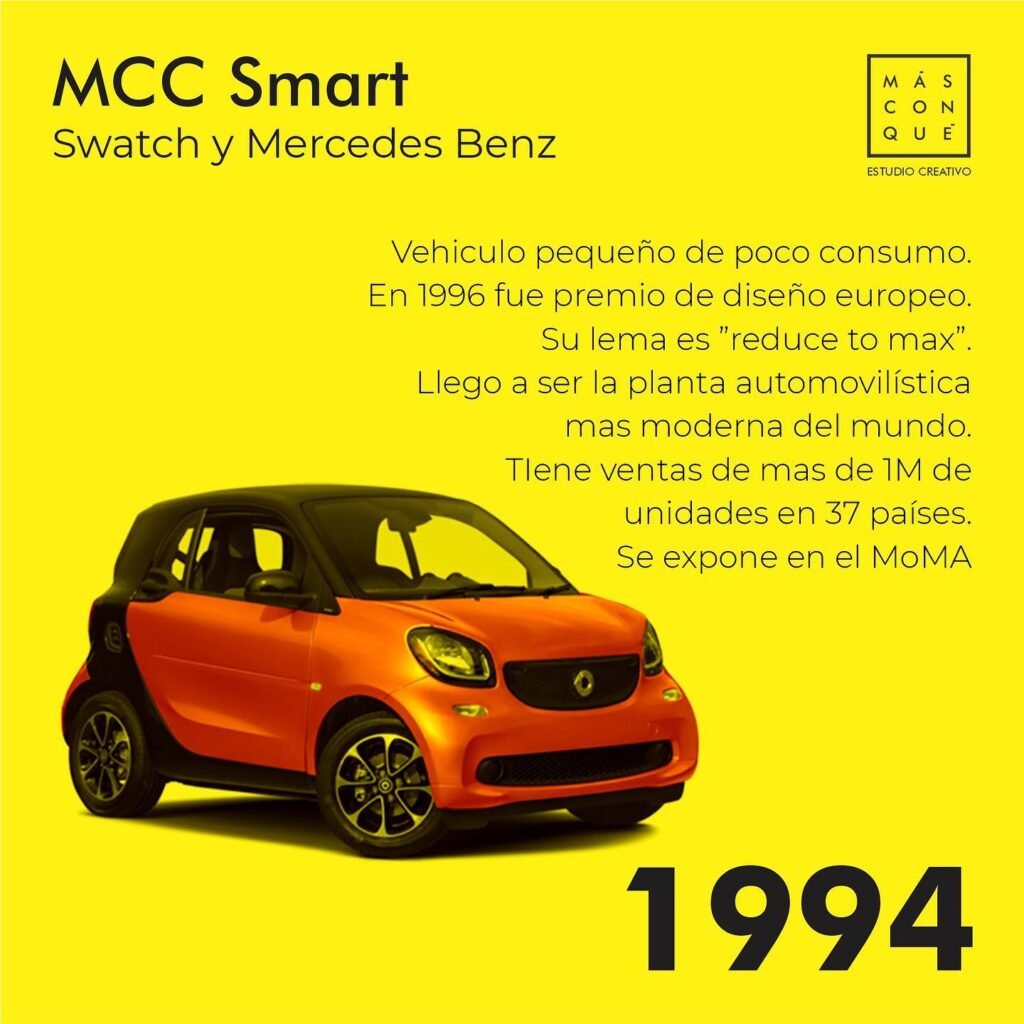The process of making Smart car started in 1994 after a deal was sealed between Daimler-Benz, maker of Mercedes-Benz and Swatch, Swiss watchmaker. A joint venture of the two companies created a firm known as Micro Compact Car AG whose headquarters were located in Biel, Switzerland. After announcing the deal, three co-directors were appointed to head the new company, which was later to be known simply as the ‘Smart’ after moving to Germany from Biel. The directors were engineer and designer Johan Tomforde and financial administrator Christopher Baubin from Daimler-Benz and swatch marketing manager Hans Jurg Schar. SMH (makers of the swatch watches) contributed 49% of the initial capital of 50 million Swiss francs while Daimler-Benz contributed the remaining 51%.
The company comprised of two branches namely MCC GmbH based in a suburb of Stuttgart known as Renningen charged with the responsibility of designing the car. Hayek’s SMH Auto SA, was to design electric drive system for the car, while Hayek engineering would appraise the design and manufacturing of new car.
Nicolas Hayek, the Swatch inventor, contributed its design philosophy while Daimler brought in the quality and engineering genius of Mercedes-Benz. Hayek had an idea of developing a new car using the same form of manufacturing strategies and personalization elements used to popularize Swatch watches. He strongly believed that the automobile industry had for long overlooked an area of potential customers who wanted a small and classy car. The partnership between Swatch and Daimler-Benz revolves around their respective knowledge about their areas of expertise.
On one hand, Mercedes for its engineering ingenuity and, on the other hand, Swatch has a cutting edge for the plastic expertise. The outcome of a combination of these features has been a superior brand whose competitiveness in the sophisticated metropolitan automobile market is remarkable and hard to beat.
However, the road to its current market position has not been smooth all the way. For example, in May 1998 (the same year when smart was put in the market for sale) its poor sales had rumors going round that the project would be terminated and that the city car was given an ultimatum of six months to prove itself. Fortunately, by year 2000, its sales started to increase and the company, in fact, achieved its goal of selling eighty thousand vehicles that year.
This tremendous success has been attributed to ex-Swatch founding partner Hans Jurg Schar whose sparkling marketing vision culminated into the powerful brand distinctiveness that Smart is enjoying in today’s competitive metropolitan automobile markets. Some observers argue that, it is the strength of the identity he created that has enabled the smart car to overcome various disasters with its repute to a large extent unspoiled. In a nutshell, each partner brought a fair share of material resources and the ideas needed to drive the project and make it a reality.
Both Swatch and Daimler-Benz gained equally from this strategic partnership. Hayek, rather than competing, he chose to cooperate with another company in the automotive industry because he feared industry players would be threatened by his original idea of Swatchmobile. This choice relieved SMH of the cost of launching a distribution network and entering a new industry. On the other hand, Daimler-Benz’s overall competitiveness in the industry was boosted by the new stylish city car associated with it since it was well known within the industry than Swatch. In addition, Daimler Benz was also relieved off the costs of making its own idea of Mercedes City Car a dream come out true. Both companies created a platform through which each would safeguard its competitive advantage in a fast changing business world thanks to ICT and accelerating globalization.
To conclude, the success of any company in different industries, in a globalized world of business, is faced by various challenges that require decisive, quick, and responsible responses. Hence, effective strategic management skills are critical for all corporate leaders as demonstrated by Swatch CEO, Nicolas Hayek, and Daimler-Benz executive, Jurgen Hubbert. Their unique ideas and strengths have lead to a superior brand that other competitors strive to beat.
